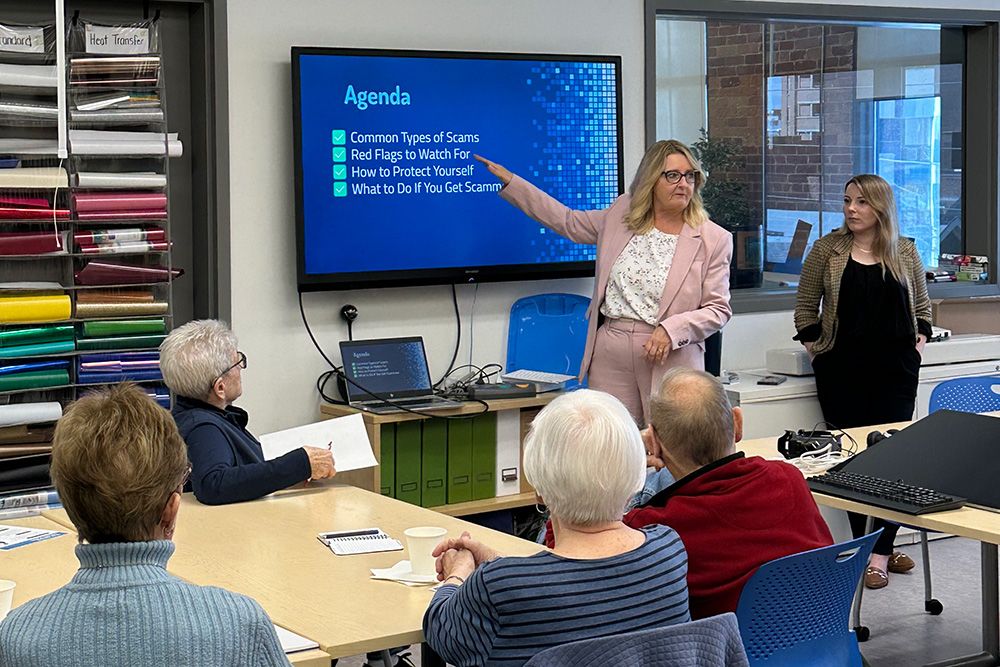Ontario Tech University researcher teaches older adults how to spot and avoid online scams
Interactive workshop focused on fraud warning signs, examples and tips for online safety
June 13, 2025

The online world offers great opportunities to connect, do business, and communicate with friends and loved ones. It can also be dangerous to unsuspecting users who fail to spot malicious schemes.
According to Employment and Social Development Canada, fraud is the No. 1 crime committed against older Canadians. While no demographic is immune to fraud, older adults are often targeted more frequently because they can be more trusting and less experienced with modern technology and security practices.
To boost digital awareness, Dr. Janette Hughes, Canada Research Chair in Technology and Pedagogy, and Professor in Ontario Tech University’s Frazer Faculty of Education, leads workshops to help older adults navigate the online world safely and confidently.
Dr. Hughes welcomed more than 30 members of the Oshawa and Durham Central PROBUS Clubs to the STEAM 3D Maker Lab for an interactive session with tips on how to detect, avoid, and report online scams. This is the first in a series of workshops designed to help older adults with technology.
Key takeaways:
- Be cautious about anything unsolicited that requires you to give personal information.
- Verify sources of information.
- Learn how to use multi-factor authentication to protect online accounts.
- When in doubt, hang up or delete and don’t engage.
The Canadian Anti-Fraud Centre reports that Canadians lost more than $630 million to scams in 2024.
“Some scams involve obtaining personal information to commit identity theft or credit card fraud,” Dr. Hughes says. “In other instances, criminals exploit trust or the desire for companionship by posing as interested romantic partners, or as friends or family members asking for help.”
Oshawa PROBUS Club Vice-President Karen Beier says her club members already discussed and acknowledged their technological blind spots before the workshop opportunity arose.
“I jumped at the chance to participate,” Beier says. “We’re going to take full advantage of everything the STEAM 3D Maker Lab offers because there are not enough resources, especially technical ones, available to people our age.”
Beier says she feels like she encounters a scam nearly every day.
“There was one I got that was so realistic: an invoice for an antivirus program,” she said. “I’m looking at it and I’m thinking, ‘Did I sign up for that?’ I was really questioning myself on it.”
Following the workshop, Beier said she and her club members felt significantly more confident in their ability to spot online scams.
“The information we received was amazing; everybody loved the seminar,” she says.
Feeling empowered against online scams, Beier says she’s excited to see how else Dr. Hughes and the STEAM 3D Maker Lab can teach club members how to use technology to improve their lives, such as helping them connect with grandchildren and other family members.
“This has opened up doors we are so excited about,” Beier says.
Ontario Tech’s Age-Friendly University designation reflects the university’s commitment to welcoming older adults from the community.
“The designation also recognizes the unique value older adults’ life experiences and perspectives bring to the university, enriching the learning experience for students they engage with,” says Dr. Hughes.



